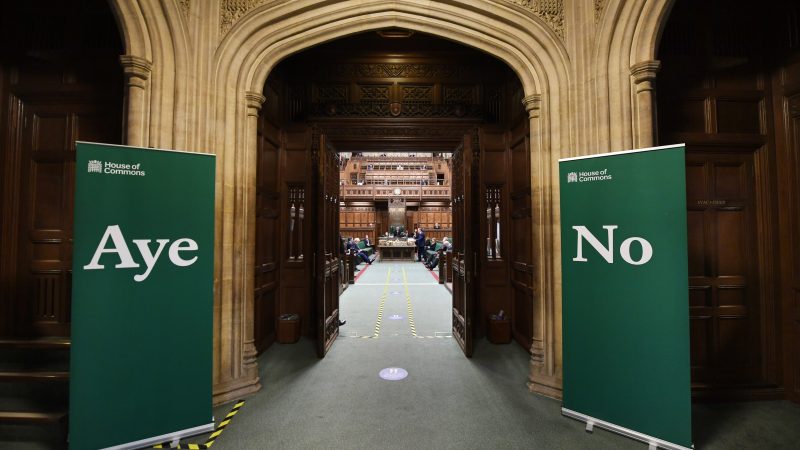
The government’s minimum service levels bill has passed its third reading unamended, with MPs voting in favour of the legislation by 315 votes to 246.
The bill, which would see minimum service levels enforced during strikes in certain areas of the public sector, completed its progress through the Commons this evening and will now go to the Lords.
Addressing MPs during the debate, Angela Rayner urged MPs to join Labour in voting down the bill “for the sake of freedom, fairness and feasibility”, denouncing the legislation as an “attack on our basic British freedoms”.
The deputy Labour leader said: “It’s from a Prime Minister who is desperately out of his depth, desperately blaming the working people of Britain for his own failures.
“There has been no opportunity for real scrutiny, no impact assessment. And there is absolutely no justification for it. The government pretence that it is about safety is offensive to every key worker.”
Rayner told MPs: “It’s this government that is failing the British people and not providing the level of care. Not our key workers, not our nurses, not our teachers, not our firefighters. They’re the ones that are supporting our key public services, and I applaud them for doing that.”
Kevin Hollinrake argued that the measures set out in the bill were “proportionate” and “sensible”, adding: “We need to maintain a reasonable balance between the ability of workers to strike and the ability to keep the lives and livelihoods of the British public safe.”
The business minister claimed that the UK would be “aligning” itself with other European nations through the introduction of the new laws, arguing: “This is not a radical bill. What we are doing isn’t even new.”
Rayner criticised ministers over the lack of scrutiny of the legislation, arguing that the government was “running away” from scrutiny because it knows that the bill “won’t stand up to it”.
She highlighted that MPs had not seen an impact assessment of the bill despite it having nearly passed through the Commons, which she described as “near unprecedented” and “deeply anti-democratic”.
“Is the Secretary of State scared that the impact assessment will speak the truth? That it will concluded that this legislation is unneeded and will actually make things worse,” Rayner said.
The Labour frontbencher accused the government of preventing MPs from “doing our job” and instead leaving scrutiny to the House of Lords, adding: “That should be a major concern to all of us.”
The minimum service levels bill proposes to give the Business Secretary the power to set minimum service levels during strikes in certain parts of the public sector, with employers instructing unions via ‘work notices’ how many workers will be required on strikes days to meet that level.
The bill would apply to six sectors: health, education, fire rescue, transport, border security and nuclear decommissioning. Under the law, unions would be required to take “reasonable steps” to ensure members comply with the work notice and could be sued if they fail to do so.
Striking workers would lose their protection from unfair dismissal if the work notice states that they should be working, provided that their employer has given them notice ahead of the strike day.
Speaking ahead of today’s debate, TUC general secretary Paul Nowak accused ministers of trying to keep MPs “in the dark” about the “draconian nature” of the legislation. The union body has submitted a freedom of information request to uncover why the government published the bill without an impact assessment.
The regulatory policy committee (RPC), which scrutinises new legislation, issued a statement following the bill’s first reading, noting that the government is “expected” to submit impact assessments to the RPC before a bill is laid before parliament but that an assessment for the bill in question “has not yet been submitted”.
The TUC has received a series of letters of solidarity from unions around the world in response to the bill, copies of which have been seen by LabourList. Letters have been sent from unions in countries including Algeria, Argentina, Belgium, Brazil, Colombia, France, Guatemala, Norway, Peru, Romania and Spain.
The TUC announced earlier this month that a national ‘protect the right to strike’ day will take place on Wednesday. The union body said events will be held across the country in protest against the anti-strike bill.




More from LabourList
‘The High Court judgment brings more uncertainty for the trans community’
‘There are good and bad businesses. Labour needs to be able to explain the difference’
‘This ruling should now remove any remaining barrier to approval of EHRC code’